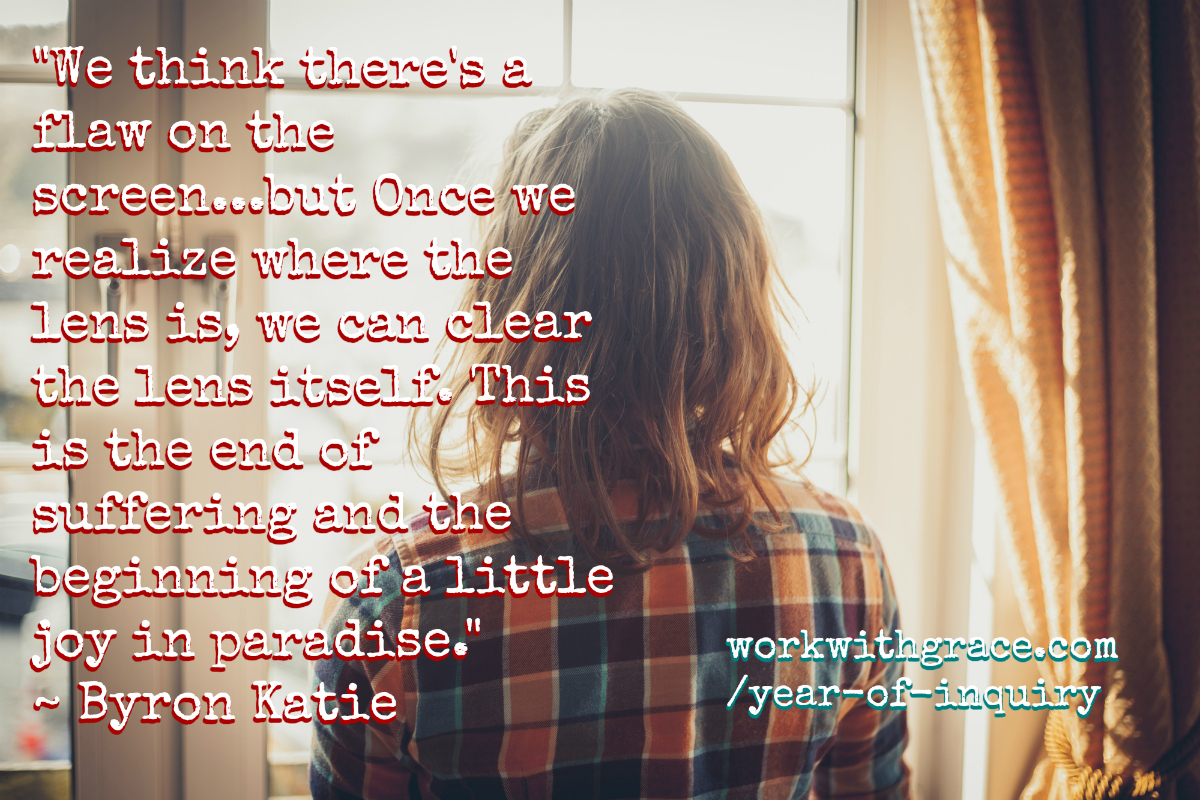
Have you ever heard of the Marshmallow Experiment?
I’ve heard it referred to it so many times, but just in case you haven’t, it’s the one where researchers interested in human behavior and personality worked with children to study self-control and how we’re interpreting situations as humans.
An adult (the researcher) would give a child a marshmallow or cookie on a plate, and tell the child they could eat it now, or, if they waited a little while, they’d get two. Then the adult would leave the room and the cameras would role.
Most kids would try to distract themselves, look away, stare at the door, appear anxious or worked up about the treat on the plate…then gobble up the marshmallow. The research would measure how long kids waited, and analyze the internal struggle that appeared to be happening.
The primary scientist so interested in this work was Walter Mischel. He first conducted the Marshmallow Experiment in 1960.
I always thought the outcome showed that humans from the very early years have clear personalities or tendencies to consider before they act….or not so much. They follow their impulses, or do what the one in authority says and resist.
But the other day, I found out it was NOT that simple. In fact, the conclusion suggesting we have clear personality traits is totally FALSE.
We’ve all heard of the terms “nature vs nurture”. They describe the two biggest influences on human life very simplified:
Nature is how we’re hooked up from birth, our DNA, the influences genetically from the people who lived before us, biochemistry, brain chemistry, our inherent personality.
If there’s such a thing as personality. More on that in a second.
Nurture is how we’re cared for, attended to, loved, neglected, seen, encouraged, supported (or not) but probably far more than all these, what we observe and experience as we grow and live.
I suppose we could have the most easy-going open and humorous “personality” in the world, but if huge traumatic events occurred in our lives….we’d be affected big time.
We might start closing down and be less inclined to be excited or happy about life.
Or, we could have a quiet, shy, even anxious personality from the start, and experience a huge challenge of some kind that we wind up surviving….
….and somehow this might bring us awareness of adversity, hardship, death and destruction in a way that makes us fearless, and very strong.
There are a lot of really amazing stories about people living life one way, then making dramatic changes and coming out different than anyone ever expected.
So back to this Marshmallow Experiment and the thing I found out that made it completely different than what I had thought for all these years since I first learned about it in grad school over 20 years ago.
During the experiment, with some kids, Mischel would speak differently about the marshmallow. He’d give them a tiny tip, a small idea or suggestion, or some little encouragement about waiting instead of struggling or immediately eating the marshmallow.
“Just pretend the marshmallow is a picture, and it’s not a REAL marshmallow. It’s not really there!”
The child would then wait far, far longer before eating it.
In fact, the vast majority of children in Mischel’s studies delayed gratification when they had this little suggestion offering of using their imagination given to them. They had a totally different approach and interpretation.
Holy Moly.
I always thought that experiment was about showing how much self-control and/or fear a child had, how willing or able they were to follow orders and overcome their cravings.
But it was really about how a small reframe of a situation could have dramatic results.
The research by Mischel kept proving over time, apparently, that people are very, very flexible and highly influenced by their environment and interactions.
In fact, they might not even have this thing called a “personality” always intact. In some situations, people are honest, kind and generous or have self-control, and in others they aren’t.
The slightest comment, look, interruption or suggestion can make a huge difference on the way we see a situation, and the way we behave.
Our interpretation of what’s happening creates our response to it.
This might seem like an obvious “well, duh!”
But I was sooooo very intrigued.
Because this may point to how and why The Work works so well when we sit with our answers to the four questions, when it comes to reviewing situations we’ve experienced.
Something happens.
We’re immediately thinking “Hmmm, I don’t like that” or “I need to worry about this” or “I love this” or “I don’t ever want this to happen again” or “I need to make this happen again because without it happening life is worse, or not as good”.
I’ve felt it a gazillion times: I like that. I don’t like this.
The mind is assessing and logging what it likes or doesn’t like all day long, it seems.
So with The Work, we turn to the situations on our lists from any time we felt threatened, disturbed, irritated, sad, or any time we were hurt or tricked or betrayed. Any time we lost something….we’ve made a note of it internally.
With The Work, we get to revisit these scenes as they occur to us, or as things happen where we have reactions, and we question our interpretations.
It’s like with our inquiry and our situations and memories, we’re the adult researcher saying to our little internal child “what if it isn’t real?”
Because here’s the thing: Right now in this moment, it isn’t.
It doesn’t mean you’re crazy or wrong, it only means our interpretation may not be complete, or healthy, or loving. It doesn’t necessarily serve us.
The past happened, and now it’s over….but even more importantly, we’ve got a limited interpretation of the situation. We aren’t ever able to see the whole entire picture, only our quick snapshot of that experience in time. We tend to feel like victims of that experience.
With The Work, one concept at a time, we get to contemplate other possibilities. Did we miss something?
Now that we’re all grown up, we get to hold that inner child and offer it some understanding, humor, awareness.
I get to ask “Are you sure that situation was totally intolerable? Are you safe now? Are you sure you lost what you think you lost?” or “Do you really need that marshmallow in order to be happy? Are you positive it’s real?”
LOL.
And when something like this is seen and grasped, then without any instructions or even trying to be positive or to NOT let something bother you….things begin to change in the way we react and respond in our daily lives.
Change just happens. All on its own. We wait much longer before immediately reacting. We feel kinder, less triggered.
Mischel wrote extensively about human behavior. He said that based on his lifetime of research about personality and how we experience life, the beliefs, expectations, and assumptions we’ve taken in from our culture, family, and friends is gigantic.
These become our filters for how we see reality.
This mind, making its interpretations so speedy quick, actually becomes a filter for everything we encounter. This mind tells us how we feel about everything.
Which really does mean, our minds are the screening device for how we see the world, how we encounter life….
….so naturally this also means when our minds or interpretations change, then how we feel changes, and how we act changes.
Our personality changes. We become different people than who we’ve been before.
Our paths unfold in new, different ways.
I see this all the time when I work with people in regular practice in The Work. They used to be tortured by the past, and now, they’re grateful.
It’s astonishing and inspiring.
Mostly, I’ve seen this kind of change long-term in myself as I’ve watched the years go by, especially once I became so interested in self-inquiry and opening up to new interpretations, ideas or thoughts about life.
I used to have tendencies to react with suspicion, nervousness, overly-nice, cautious, uncomfortable with strong emotion, forgetting to care for myself in the presence of other people (even my own children who I adored), indecision, seeing dramatic and scary futures, remembering difficulties in the past.
Now, it seems the tendencies have deeply and dramatically changed, and I’m still working on what’s left and still learning so much.
But I am a completely different person.
That woman (with The Work you can even question the interpretation of being a “woman” if you want) who was anxious, addicted, and trying to act like a good person all the time….is mostly gone. Or what was once deep dark red is now pale pink.
I’m not trying to get rid of her or make sure she doesn’t come back. She’s just not here anymore.
Sure, I have some of the same coloring or “personality” of that one who lived before. I tend to be overly-flexible sometimes or like I’m going to miss something if I say “no” or when I hear a very difficult traumatic story, my heart opens with the suffering and I might cry.
I also see both the worst and the best that could happen, and crack myself up at the drama of how quick the mind goes to the “worst”.
But the question arises almost immediately “is it true?”
I see that I simply don’t have the full and complete answer and probably never will, and that life is lighter without set and solid answers.
The most wonderful thing about doing The Work, or this deep form of self-inquiry, is that I’m not hunting for someone else’s answers, I’m finding my own flexible ones.
When I do The Work, new options naturally enter my world in the form of experts, practitioners, influencers, connections, advice and fun.
I’m not doing this all alone in a bubble based on old influences from the past….but opening up to new possibilities today, in the present moment.
Who knows what amazing change can happen, starting NOW, by questioning the stressful idea that might be present for me?
Who would I be without my story, my interpretation, my mental filter?
On a wide open road in a brilliant spacious moment.
Testing new ideas, living some of my turnarounds, changing my behaviors, trying new things.
The way movement and change has occurred for me clearly in my life is to challenge my interpretations. This doesn’t appear to come easily.
I had to get help from others, my thinking was so murky and unclear. Like a fogged up mirror in the bathroom–I couldn’t even see myself at all!
Questioning my thoughts with other people has made all the difference. I can sit down and do The Work, but there’s nothing like sharing it and connecting with other humans to see if I’ve missed something.
The result has been one of small, tiny, sometimes bigger, significant, steady change.
The other day I heard Byron Katie speak on a recording that “we can shoot for the moon” when we have inquiry as a companion. We’re not frightened of accomplishment, we’re not scared of facing something new, or telling the truth.
A lovely group is forming to share self-inquiry as a practice this upcoming year, in steady continued investigation of our stories, together.
It’s called Year of Inquiry.
A time to stick with this process of dissolving the filters and stories, instead of trying to find a different shiny new way somewhere else.
We do The Work, and un-do our previously built stories or interpretations and change the filter. Or, the filter naturally winds up changing.
Who knows what happens when we have a kind adult voice saying “Are you sure that’s real? Are you sure you’re looking at it in a way that serves you? Could you see it differently?”
This upcoming week is Orientation Week and we’ll begin our inquiry calls the following week.
People have been writing with a ton of questions about how the program calls are set up, the schedule, the expectations.
You can read about it here, but what I’ll say in a nutshell is we gather almost-weekly all year for 90 minute inquiry calls together as a group, you’ll have partners all year twice a week to connect with other human beings, we’ll look closely at a different topic every single month that typically produces lots of stress for people, and we’ll grow.
We change.
We don’t have to argue with What Is anymore. We know when something is stressful for us, we suffer. We move away from, or naturally expand, our interpretation of events to something bigger, wider, and usually more joyful.
“There has been so much happen this year that I wouldn’t had dealt with anywhere near as well. I am amazed at the peace that abides with me. Oh Grace, I am so grateful for your work in this world. Had you not been so clear, peaceful, real, and provided the safe space you did, I could not have dared do all this work. It is now part of my life.” ~ YOI participant 2017-2018
The first two months, you can test it out after you join, so you don’t have to fully commit until November 1st.
I couldn’t do this work alone–some can and that’s absolutely awesome.
But if you need the structure and guidance, I’d love to have you be in the tribe of us who’ll be living with this inquiry and watching our filters get cleaner and brighter over time.
Enroll here. If you head to this page, there will be a recorded presentation at the top about every detail of the program you can watch (60 minutes) and fast forward through any piece of it. There are slides to make it easy (it’s a webinar). If you’re ready to join, scroll down until you see the registration links.
When you sign up, I’ll get a personal email and write you back within 24 hours to welcome you and get our first solo session scheduled.
Can’t wait to begin.
Much love,
Grace

